More about "Djanes" project
This is a media project of the Roma youth organization "ARCA". It includes news of the Roma community in Ukraine, interviews and life stories, interesting facts designed to break stereotypes.
Djanes
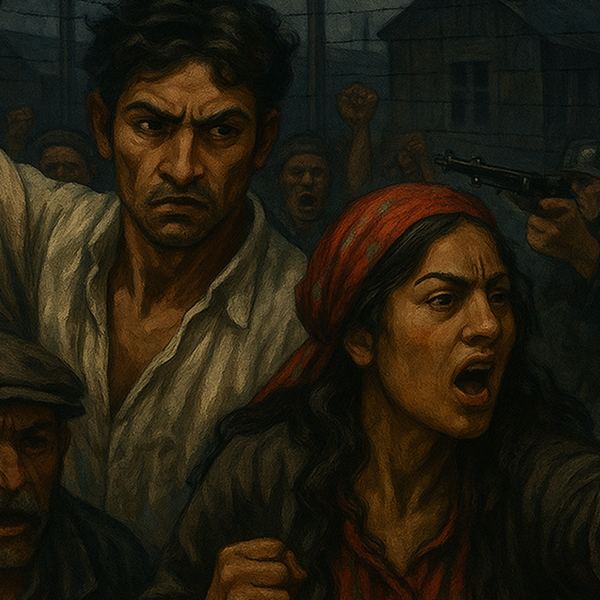
Не знищені, а ті, хто билися до останнього: 16 травня — День ромського спротиву
В медіапросторі ми читаємо про Голокост, трагедію у Руанді, винищення вірмен за часів Османської імперії… Нарешті гучно звучить трагедія українського народу: Голодомор, примусова депортація… А де в підручниках історії, в ЗМІ, в побуті звучать історії про ромів? І от в цьому мороці замовчування та ігнорування ми вчергове говоримо про важку і важливу дату — День ромського спротиву.

Справжня пам’ять — це чесна пам’ять, у якій є місце для кожного героя
Травень в Україні та у світі багатий на дні пам’яті, присвячені вшануванню полеглих у боях Другої світової війни. Для ромів ці дні також є важливими. Однак ромська спільнота має своє окреме свято — 16 травня, яке відзначається як День ромського спротиву.
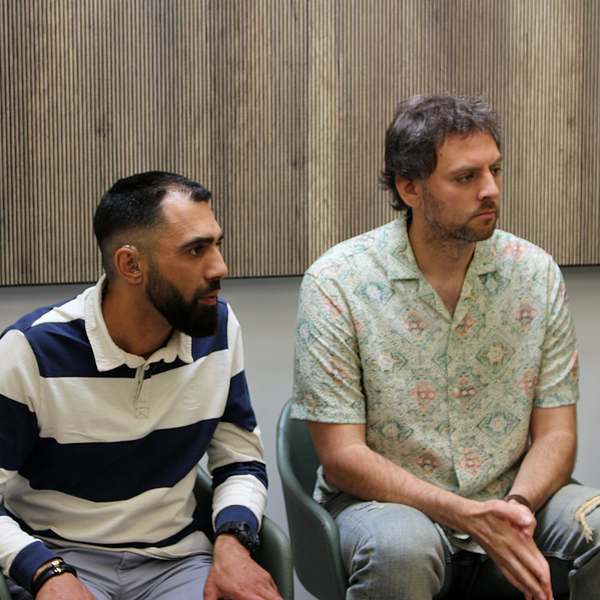
Роми України на фронті: голос спротиву в Брюсселі
29 квітня 2025 року в Брюсселі відбулася публічна дискусія, присвячена участі ромських громадян у спротиві вторгненню Росії в Україну. Захід був організований Антидискримінаційним центром «Меморіал» у співпраці з Українським центром ромських студій Херсонського державного університету та за підтримки Міжнародного партнерства за права людини (IPHR).

Якщо ми не повернемося обличчям до свого минулого — можемо втратити майбутнє
Днями в соціальних мережах поширилися відео, де люди збирають солодощі та інші наїдки на кладовищах, несучи їх у великих сумках. Такі кадри супроводжуються різними коментарями — часом агресивними, часом саркастичними. Деякі з них нас вразили настільки, що ми вирішили дати роз’яснення, аби внести трішки світла у цю непросту тему.

Між традицією та архаїзмом: про ранні шлюби серед ромів
Їй — 14, на пальці — обручка. Він у 16 вже «глава сім’ї». Роми рано одружуються. Це не міф і не стигма. Це — факт, який визнають і самі представники громади. І хоча не всі роми беруть шлюб у 13, ця практика зберігається. У чому її коріння? Які наслідки для дітей? І що може змінити ситуацію?

Паски-гіганти, святкування в родинному колі та застілля на цвинтарі: як роми святкують Великдень
Традиції святкування Великодня ромами в Україні — це завжди про давню історію, важливість родинних зібрань та зв’язок з предками. Єва Райська зібрала історії кількох ромських родин, які розповіли те, як готуються до Великодніх свят, зокрема, випікають паски. А ще — дізналась рецепт ромської паски.
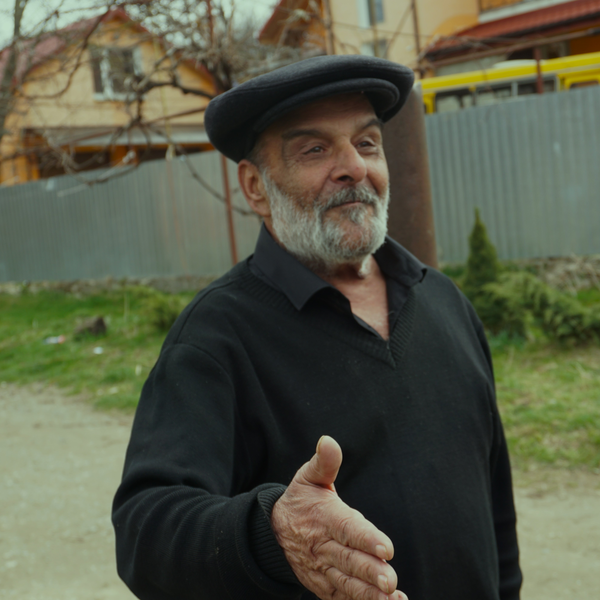
Роми у фотографіях: як життя ромських спільнот фіксується через об’єктив
Інколи, щоб передати цілу історію, достатньо лише одного кадру плівки чи фотоапарату. Або навпаки: фотографія змушує більше розповісти про героя та створити після неї щось більше, ніж просто фото.
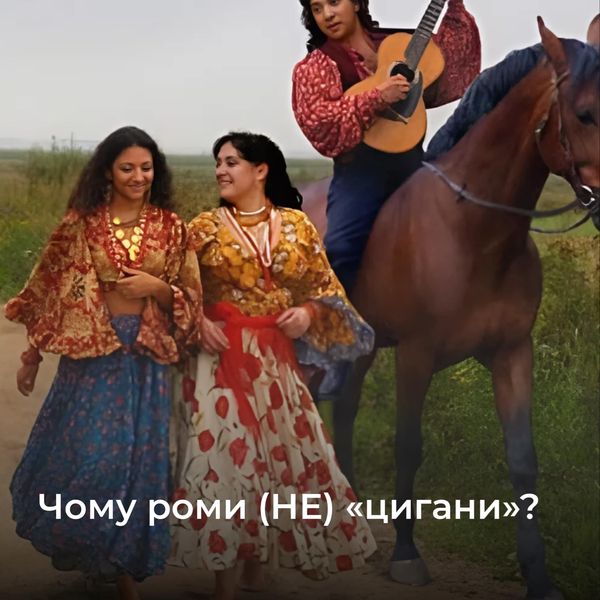
Чому роми (НЕ) «цигани»?
Чому сама спільнота продовжує називати себе «цигани», а у публічному просторі прийнятним є використання поняття «роми»? До прикладу, українці не люблять, коли їх називають «хохлами». Та й вихідці з Кавказу не кажуть на себе «хач». Пишу і млосно стає від цієї лексики, яку використовую лише, як ілюстрацію зневажливого звертання. І от тут перша відмінність: роми не вважають слово «цигани» якимось поганим, зневажливим чи образливим.

Циганська муза. Як Ліна Костенко писала про ромську поетку Папушу
«Розказані пісні», «Лісу, батьку мій», «Папуша, велика таємниця» – ці та інші вірші написані однією з найбільш відомих ромських поетес – Папушею, вона ж Броніслава Вайс. Про неї ми уже писали в нашому попередньому матеріалі, цього ж разу хочемо розповісти про те, як циганську поетесу зобразила у своїй поемі українська письменниця-«шістдесятниця» Ліна Костенко. Образ Папуші став одним з ключових у літературі, кіно, музиці, театрі та живописі.
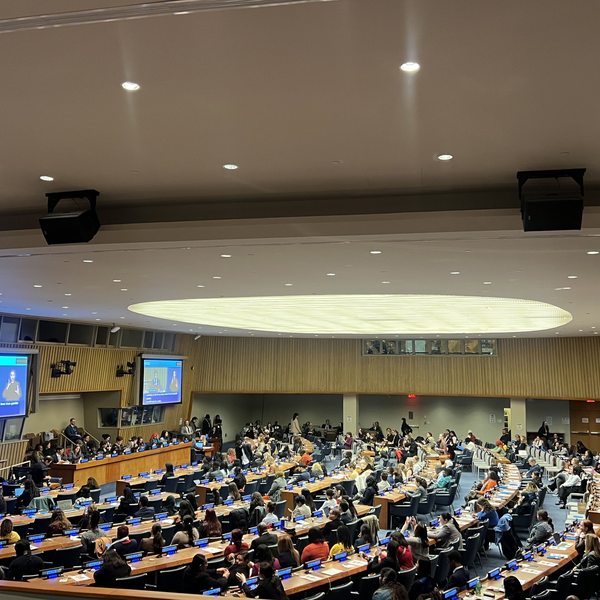
Ukrainian Roma women spoke at the 69th UN session in New York. What did they say to the world?
У березні 2025 року українські ромські активістки вперше взяли участь у 69-й сесії Комісії ООН зі становища жінок як скоординована делегація. Вони стали голосом не лише вразливих категорій населення, а й представили нову хвилю жіночого лідерства, що формується всупереч війні та дискримінації.
Also in this section:
- «Невидимі. Стійкість: минуле і сучасність ромів». Як зрозуміти історію ромів через візуальну культу
- Альфреда Марковська: історія життя і порятунку інших
- «Дивись і не забувай»: 15 років Dikh He Na Bister у Кракові
- ФОТОРЕПОРТАЖ: У Києві відкрили виставку про ромську історію та ідентичність
- «Відновлення пам'яті – роми у Варшавському гетто». Історична екскурсія у Варшаві
- PHOTO REPORT: Events commemorating the victims of the Roma genocide in Babyn Yar
- 2 серпня — Міжнародний день памʼяті жертв геноциду ромів
- Коли допомога — це більше, ніж ваучер
- Антициганізм поруч: як розпізнати упередження у звичних словах і жартах
- Стереотип замість культури: як TikTok спрощує ромську ідентичність